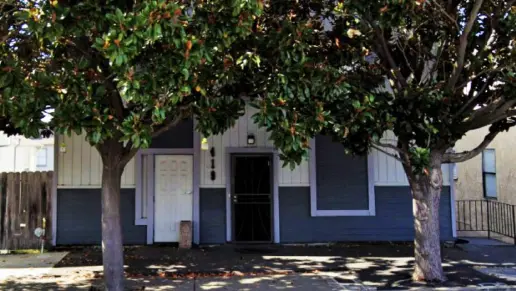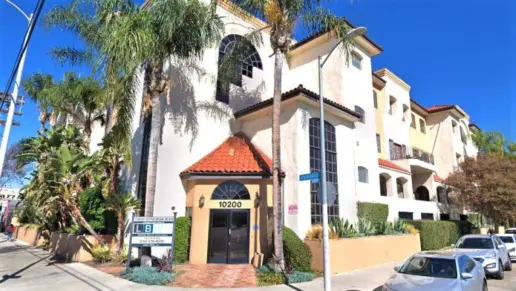About Monte Nido
Monte Nido, located in Newport Beach, California, offers partial hospitalization programs (PHPs) and intensive outpatient programs (IOPs) for adults and adolescents struggling with eating disorders. Services include dual-diagnosis treatment, living accommodations for those 18 and older, and alumni support.
At Monte Nido, the PHP offers treatment for several hours per day, up to seven days per week, and the IOP offers treatment several hours per day, up to five days per week. Services for both programs include individual and group therapy, dual-diagnosis alcohol and drug rehab services, nutritional and dietary sessions, and relapse prevention planning. Approaches include cognitive processing therapy (CPT), dialectical behavioral therapy (DBT), and other evidence-based methods.
When treatment ends, Monte Nido offers aftercare support, such as helping clients connect to the next step in treatment, connections to 12 Step and other recovery programs, ongoing support groups, and group alumni activities.
Monte Nido accepts multiple insurance plans, including Cigna Healthcare, Blue Cross Blue Shield, Humana, Aetna, Kaiser Permanente, and Beacon. Every insurance plan is different, so be sure to verify coverage information and out-of-network benefits with your insurer.
Rehab Score
Gallery

Location
Accepted Insurance
Other Forms of Payment
Private insurance refers to any kind of healthcare coverage that isn't from the state or federal government. This includes individual and family plans offered by an employer or purchased from the Insurance Marketplace. Every plan will have different requirements and out of pocket costs so be sure to get the full details before you start treatment.
Self-pay involves paying for treatment out of your own pocket. You can use savings or credit, get a personal loan, or receive help from family and friends to fund your treatment. If you don't have insurance or your insurance plan doesn't cover a specific program, self-pay can help ensure you still get the care you need.
Addiction Treatments
Levels of Care
Treatments
Co-occurring presentations such as substance abuse and trauma reactions like PTSD, share common causal and maintaining factors with eating disorders that influence treatment and recovery. At Monte Nido, they believe thoroughly assessing and treating co-occurring issues will substantially improve the chances of becoming fully and sustainably recovered. This programming focuses on stabilizing eating disorder, substance use and PTSD symptomatology; reducing urges, enhancing motivation, developing alternative coping capacities and changing the way clients think about themselves and their world. The treatment includes CBT, DBT, CPT (Cognitive Processing Therapy) and more.
Mental health rehabs focus on helping individuals recover from mental illnesses like bipolar disorder, clinical depression, anxiety disorders, schizophrenia, and more. Mental health professionals at these facilities are trained to understand and treat mental health issues, both in individual and group settings.
Programs


Clinical Services
Cognitive Behavioral Therapy (CBT) is a therapy modality that focuses on the relationship between one's thoughts, feelings, and behaviors. It is used to establish and allow for healthy responses to thoughts and feelings (instead of unhealthy responses, like using drugs or alcohol). CBT has been proven effective for recovering addicts of all kinds, and is used to strengthen a patient's own self-awareness and ability to self-regulate. CBT allows individuals to monitor their own emotional state, become more adept at communicating with others, and manage stress without needing to engage in substance abuse.
Dialectical Behavior Therapy (DBT) is a modified form of Cognitive Behavioral Therapy (CBT), a treatment designed to help people understand and ultimately affect the relationship between their thoughts, feelings, and behaviors. DBT is often used for individuals who struggle with self-harm behaviors, such as self-mutilation (cutting) and suicidal thoughts, urges, or attempts. It has been proven clinically effective for those who struggle with out-of-control emotions and mental health illnesses like Borderline Personality Disorder.
Eating disorders include anorexia, bulimia, binge eating, and dysfunctional eating patterns. Many psychologists and other mental health professionals consider eating disorders to be food addictions, meaning food is being used in an addictive way (similar to drug or alcohol addiction). Certain substance abuse treatment programs will have treatment for eating disorders as one of the services offered. An eating disorder may also present as a co-occuring disorder or dual diagnosis alongside drug and alcohol addiction.
Research clearly demonstrates that recovery is far more successful and sustainable when loved ones like family members participate in rehab and substance abuse treatment. Genetic factors may be at play when it comes to drug and alcohol addiction, as well as mental health issues. Family dynamics often play a critical role in addiction triggers, and if properly educated, family members can be a strong source of support when it comes to rehabilitation. Family therapy includes individual family sessions and multi-family groups.
Group therapy is any therapeutic work that happens in a group (not one-on-one). There are a number of different group therapy modalities, including support groups, experiential therapy, psycho-education, and more. Group therapy involves treatment as well as processing interaction between group members.
In individual therapy, a patient meets one-on-one with a trained psychologist or counselor. Therapy is a pivotal part of effective substance abuse treatment, as it often covers root causes of addiction, including challenges faced by the patient in their social, family, and work/school life.
Nutrition therapy, aka medical nutrition therapy (MNT), is a way of treating physical, emotional, and medical conditions through diet. Specific dietary plans are designed by professional nutritionists or registered dietitians, and patients follow them in order to positively affect their physical and mental health.
Trauma therapy addresses traumatic incidents from a client's past that are likely affecting their present-day experience. Trauma is often one of the primary triggers and potential causes of addiction, and can stem from child sexual abuse, domestic violence, having a parent with a mental illness, losing one or both parents at a young age, teenage or adult sexual assault, or any number of other factors. The purpose of trauma therapy is to allow a patient to process trauma and move through and past it, with the help of trained and compassionate mental health professionals.
Amenities
-
Private Setting
Accreditations

The Joint Commission, formerly known as JCAHO, is a nonprofit organization that accredits rehab organizations and programs. Founded in 1951, the Joint Commision's mission is to improve the quality of patient care and demonstrating the quality of patient care.
Joint Commission Accreditation: Yes
Contact Information
2 Corporate Plaza Dr
#200
Newport Beach, CA 92660







